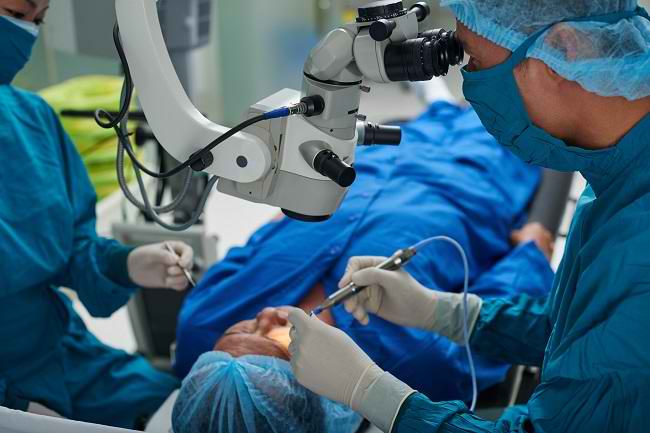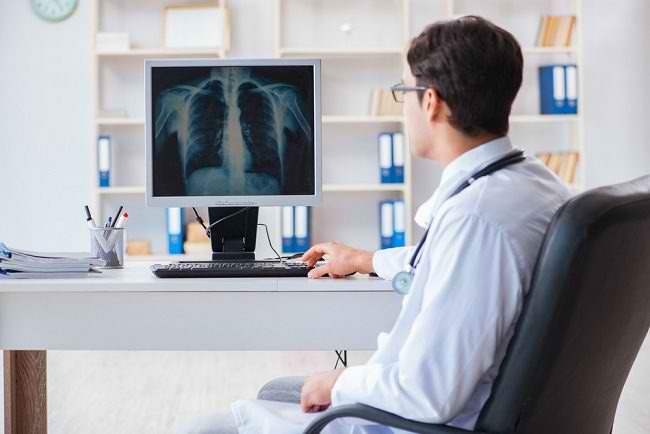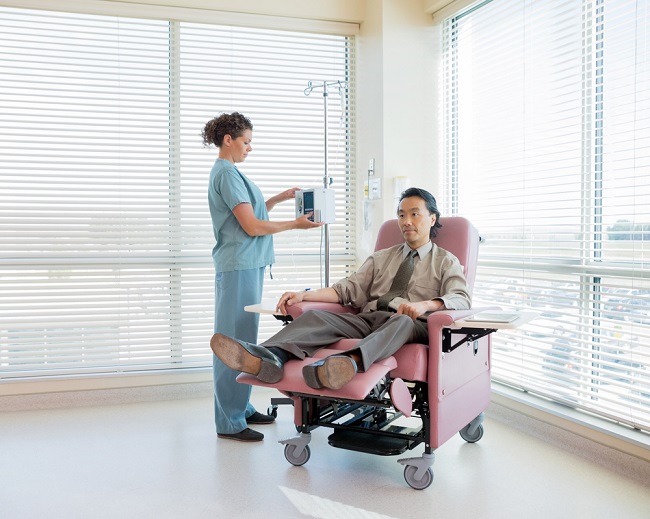Infectious disease iscondition which arises as a result of attack microorganism, as viruses, bacteria, fungi and parasites.Correct diagnosis can provide information about the types and causes infection,so that the treatment given is effective.

Various microorganisms can live in the human body, and they are generally harmless, or sometimes even beneficial. However, under certain conditions, these microorganisms can interfere with body functions by causing certain diseases.
Not only caused by microorganisms that live in the human body, an infectious disease can also arise as a result of being transmitted by sufferers of the disease. This transmission can occur through direct contact or through intermediary media, such as contaminated food, air, water, or blood. In addition, infectious diseases can also be transmitted from animals or insects.
Indications for Infectious Disease Examination
Examination of infectious diseases will be carried out by doctors on patients who experience symptoms. The following are a number of symptoms that are generally signs of infection:
- Fever
- Cough
- Muscle ache
- Weak
- Diarrhea
If you experience the above symptoms, it is recommended to see a doctor and undergo the recommended examination. Especially if:
- You were previously bitten by an animal or insect
- Accompanied by the appearance of a rash or swelling of the skin
- Accompanied by sudden visual disturbances
- Fever that lasts a long time
- Accompanied by shortness of breath
- Accompanied by a cough that lasts more than 1 week
- Accompanied by a severe headache
Infectious Disease Check Warning
There are no barriers for a person to undergo an infectious disease examination. However, this procedure may involve taking a blood sample using a needle. Therefore, patients who are taking blood thinning drugs will be asked by the doctor to stop taking these drugs for a while. In addition, patients who suffer from blood clotting disorders must inform their doctor about their condition before undergoing an examination for infectious diseases.
Implementation Infectious Disease Check
Examination of infectious diseases begins with the doctor studying the symptoms that exist in the patient. Pain can be an important clue as to the source of infection in the patient's body. In addition, rashes, coughs, runny noses, nasal congestion, and diarrhea also help doctors in diagnosing.
In addition to studying the symptoms, the doctor will also review the patient's medical history. Among them:
- Diseases the patient has suffered.
- The health condition of the patient's family at home and his close friends.
- Procedures that the patient has undergone, such as surgery or organ transplantation, because these can be a means of infection.
- History of immunization and use of drugs that can affect the condition of the patient's immune system, such as corticosteroids and immunosuppressive drugs.
After that, if necessary, additional examinations will be carried out. This examination is done by taking samples to be tested in the laboratory. The samples used are generally taken from:
- Blood
- Urine
- Feces
- Saliva
- Throat mucus
- Sputum
- Brain and spinal fluid (cerebrospinal fluid)
- Body tissue samples
The following are some examples of investigations that may be recommended by a doctor to determine the cause of infection:
- smear Gbacterial ram. Examination with a microscope is done to detect the presence of bacteria and determine the type of bacteria, Gram positive or negative, because it will determine the treatment.
- Microbial culture. Samples that have been taken from patients will be cultured in the laboratory using a special culture medium to identify microbes that cause infectious diseases more specifically. The microbial culture process can take several days to weeks, depending on the difficulty of the bacteria growing in the laboratory. Some types of bacteria can even be grown in the laboratory at all, such as the bacteria that causes syphilis (Treponema pallidum), thus requiring other diagnostic methods to identify the disease.
- Antibody test. Antibody tests are performed to detect specific antibodies that react to microbes that cause infection. Antibody tests generally use a blood sample, but can also use samples from other body fluids, such as cerebrospinal fluid. Antibodies play a role in detecting microbes that cause infection, because antibodies will only react specifically to one type of microbe only if an infection occurs. Therefore, the presence of antibodies will be a sign that the patient has been exposed to the microbial infection and is providing an immune response. However, the weakness of this test is that antibodies remain in the immune system even though the infection-causing microbe is no longer in the body.
- Antigen test. An antigen is a part of a microbe that can trigger an immune system response in the body, by reacting to antibodies. In other words, the presence of microbes can be detected by detecting antigens. This test can be used to determine the cause of infection which cannot be done by microbial culture methods. For example, syphilis bacteria or viruses. Antigens are generally obtained from blood samples which are then reacted with specific antibodies to identify the type of antigen that causes infection in the patient.
- Antimicrobial resistance test. Tests are carried out to find out which antimicrobial drugs are most effective in treating infections, and to find out whether the microbes causing the infection already have resistance or resistance to the drugs to be used. Antimicrobial resistance tests are also carried out by conducting a microbial culture, then adding the type of antimicrobial drug to be used. The results of this test can be a consideration for doctors to determine which drugs will be given to patients.
- Microbial genetic testing. This test is done by detecting the presence of specific DNA or RNA belonging to the microbe that causes infection. This test can provide more accurate and faster results than microbial culture, because it does not have to wait for microbes to grow first.
In addition to the above examination methods, patients can also undergo other supporting tests as a support to provide a more accurate diagnosis. Examples are X-rays, MRI, CT scans, and biopsies.
After Infectious Disease Examination
The results of the infectious disease examination will be out within a few days or weeks, and will be given by the doctor to the patient at the time of the consultation. The doctor will explain the type of infectious disease that is being suffered by the patient, and the drug that must be used. Example:
- Antibiotics.Antibiotics will be given by the doctor to the patient if the patient suffers from a bacterial infection. The doctor will provide detailed instructions for the use of antibiotics to the patient.
- Antivirals.Antiviral will be given by doctors to patients if they suffer from viral infections, for example Herpes, HIV / AIDS, or hepatitis.
- antifungal.An antifungal will be given by a doctor if the patient suffers from a fungal infection, either in external or internal organs. For more serious fungal infections, they usually have to be treated with antifungal injections.
- antiparasitic.Antiparasites will be given by doctors to patients if they suffer from parasitic infectious diseases, for example malaria.
In addition to these drugs, patients can do a number of things to help relieve symptoms of infectious diseases. If you have a fever or chills, the patient should increase the amount of water he drinks a day and rest more. Patients are also advised to eat foods and fruits that contain lots of vitamins in order to help the healing process. The doctor will tell you what foods should be increased in number, and which should be avoided so that the condition does not get worse.
Risk of Infectious Disease Examination
Examination for infectious diseases is a very safe procedure to undergo, and rarely causes complications. For examination procedures that involve taking a blood sample, the risks that can occur are:
- Bleeding
- Infection
- Rash
- Painful
- bruises
- Faint









